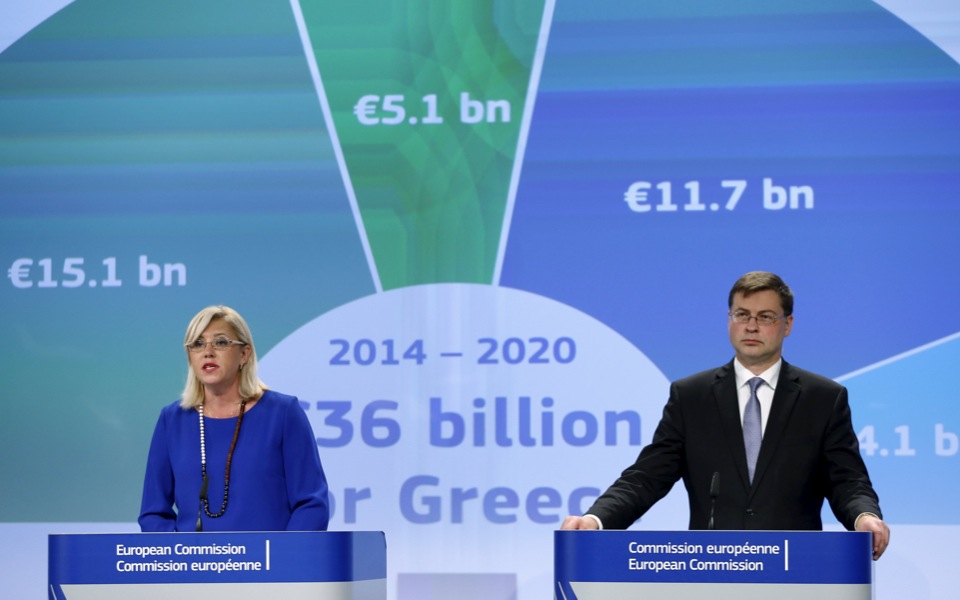EU publishes Greece assessment, sees debt reprofiling

The European Commission published on Wednesday its assessment of Greece’s bailout request, taking a different view of Athens’s debt sustainability than the IMF, but also signaling a possibility of debt relief.
A day after the IMF published its latest assessment, saying Greece would require extensive debt relief from its mostly eurozone sovereign creditors, the EU executive’s note said the Greek debt-to-GDP ratio would be 150 percent in 2022 if Athens implemented reforms, but could reach 176 percent if it did not.
The IMF, which contributed to the Commission assessment made last week, expects a debt-to-GDP ratio in 2022 of 170 percent and called for much greater debt relief than has been proposed.
The Commission’s assessment said reprofiling of the debt was possible, but no write-offs, and only if Greece implemented reform measures demanded by its creditors.
“The concerns could be addressed through a far-reaching and credible reform program, very strong ownership of the Greek authorities for such a program and, after full restoration of the loans agreements, debt-mitigating measures that would be granted only once the commitments to reform from the Greek authorities has been demonstrated,” it said.
“A very substantial re-profiling, such as a long extension of maturities of existing and new loans, interest deferral, and financing at AAA rates would allow to cater for these concerns from a gross financing requirements perspective, though they would still leave Greece with very high debt-to-GDP levels for an extended period.”
The IMF study said European countries would have to give Greece a 30-year grace period on servicing all its European debt, including new loans, and a dramatic maturity extension.
The alternative was between annual transfers to the Greek budget or “deep upfront haircuts” on existing loans, it said.
Gross financing needs would rise to above the 15 percent of GDP threshold deemed safe and continue rising in the long term, the updated IMF study said.
The European Commission, however, estimates the same ratio would be 10.4 percent on average in 2015-30 and, in an adverse scenario, 13.1 percent.
European Commission Vice President Valdis Dombrovskis said that Greek debt sustainability, while a serious concern, should be seen more in terms of what burden it presented to the economy than in terms of the more abstract debt-to-GDP ratio.
“It must be emphasized that eurozone loans are not an issue for Greek debt sustainability because they have long grace periods … Greece is currently paying neither interest nor principal on the loans,” Dombrovskis told a news conference.
“As a result the Greek debt financing costs are lower than those of Italy and Portugal, which nominally have a lower debt-to-GDP ratio,” he said.
“You need to look not only at the debt-to-GDP ratio, you also need to look at the debt conditionality to understand the real cost of debt servicing,” he said.
[Reuters]





